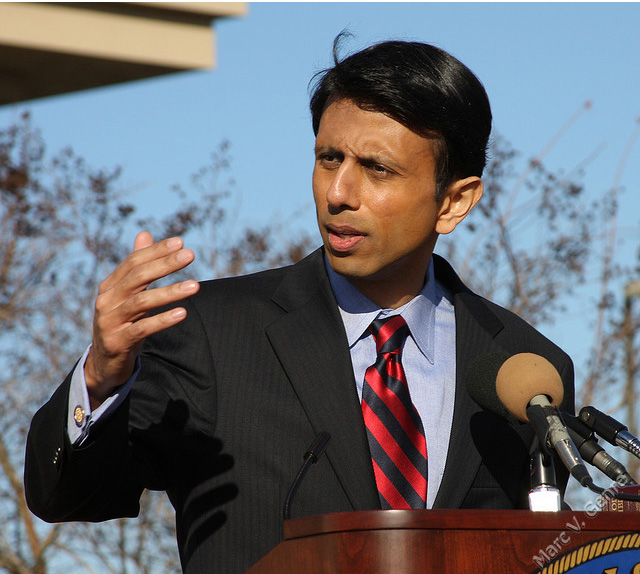Just a few days before his resignation was announced, Scott Kipper, the man handpicked to help the Jindal administration privatize Louisiana state employees’ health insurance, was grilled by lawmakers about the plan. At a hearing on June 1, some members of the State Senate’s Senate & Governmental Affairs Committee accused Kipper of being less than truthful in his testimony.
The administration has said that privatizing the Office of Group Benefits, which manages the health insurance of around 250,000 state workers, retirees and their dependents, would save taxpayers money, and get the state out of the health insurance business. But critics have countered that OGB isn’t broken, and doesn’t need fixing, and some have raised questions about the fate of the agency’s $500 million surplus.
At the hearing last week, though, the senators were particularly focused on the so-called “Chaffe report,” an evaluation of OGB recently prepared by a New Orleans company named Chaffe & Associates. Lawmakers wanted to know why the administration has kept the report private, and Kipper struggled to come up with answers they liked.
The administration announced on Monday that Kipper had turned in his resignation after less than two months on the job. The previous OGB CEO, Tommy Teague, was apparently ousted in April for not going along with the privatization push. Kipper’s testimony last week came during a confirmation hearing (the committee makes confirmation recommendations before the full Senate votes on appointees), and he appeared alongside Commissioner of Administration Paul Rainwater and Deputy Commissioner of Administration Mark Brady.
Early in the hearing, State Sen. Edwin R. Murray (D) wanted to know if Kipper had seen the report, but had a hard time getting Kipper to even acknowledge that a report exists.
“Senator Murray, I have not seen that report,” Kipper said at one point. “I have not seen that report.”
“So it does exist?” Murray asked.
“I have no knowledge that it exists–” Kipper responded.
A little later on, when the existence of the report had been firmed up, Murray wanted to know, more specifically, if Kipper himself had asked to see the report. Kipper said that he had not, because he does not want his “judgment jaded” by the report while he evaluates bids currently coming in from financial advisers that want to help the state with OGB’s privatization.
“The report might tell you there’s no need to privatize it,” Murray said.
“That might be the case,” Kipper admitted.
Watch:
Kipper wasn’t alone taking heat. The senators turned to Rainwater for more information about the Chaffe report, and asked him to explain why a report evaluating a state agency had not been seen by the agency’s chief executive.
“Mr. Kipper needed to learn the organization, it’s a large complicated organization, its basically an insurance company as we’ve talked before,” Rainwater said. “He’s got really good, strong credentials and experience, so I asked him to stay focused on that, not worry about the report right now.”
Rainwater said the report has been “blown out of proportion” by privatization opponents, and that it was a “validation of what we already thought.”
Toward the end of Kipper, Brady and Rainwater’s time before the committee, state Sen. Karen Peterson (D) requested a copy of the report. Rainwater said she could have a copy. But Sen. Murray interjected, saying that Senate staff had previously been denied a copy by Rainwater’s own Division of Administration. Murray and Peterson then took Kipper to task for what Peterson called “fudging” and “teetering.”
A few days after the hearing, it was announced that Kipper would resign, effective June 24. The timing means that he’ll still be head of OGB on June 15, when the agency is scheduled to pick the third-party that will help with privatization. And despite Rainwater’s testimony, no senator has apparently yet been given a copy of the Chaffe report.
Asked about the status of releasing the report by a local TV station Monday, Rainwater said, “Well okay, so here, first of all, the report has just been completed. Secondly, what I’ve got to make sure is that the report itself does not cause us a problem as we go through a solicitation of offers,” Rainwater told WAFB.
(h/t Louisiana Voice)






